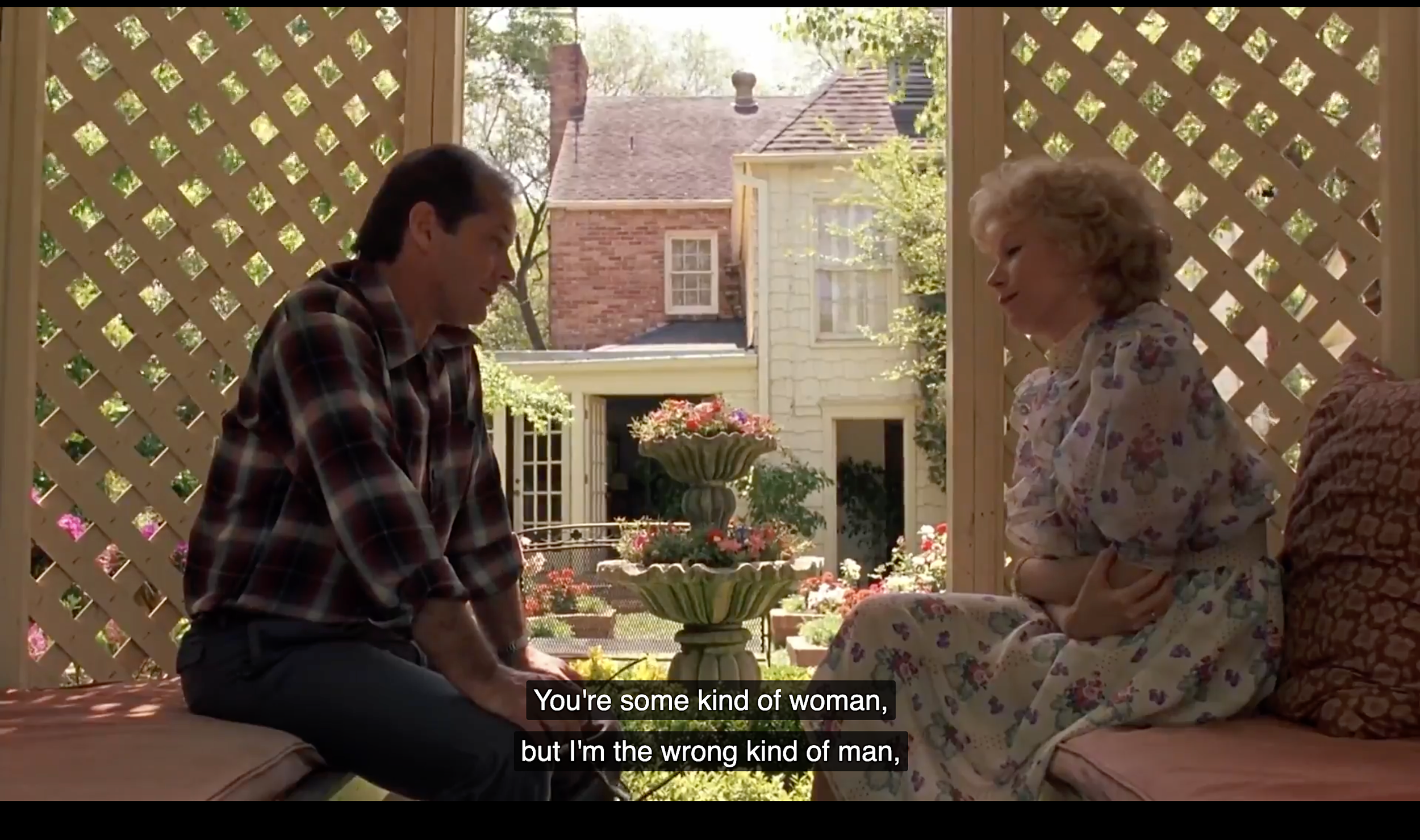3:16:25
Terms of Endearment, 1983
Every time I watch this amazing but very strange (and stranger each time I see it), mysterious, intense movie, it cuts me up for days. It is a film that does not explain anything, that does not explain or analyze any of its characters, or the things they feel and do, and that makes it wholly unto itself, as far as Hollywood films go. I myself struggle with this lack of explanation and resolution. Mostly because it hurts not to know things for sure, it hurts to not get justice. It hurts to see Garrett (Jack Nicholson), a man in his 50s, throw Aurora away without any real explanation, except selfishness and a lack of true interest, I guess. Without telling her, or us, that he loves her (he does some years later, when her daughter Emma gets sick, but it’s a different kind of love he’s expressing). It seems he doesn’t love her that way, or not enough to change or disturb his bachelor life. And at 50 something, Aurora was finally ready. Finally capable.
There are many tragedies in the film and all of them are approached with resilience, in great stride, and with a complete lack of self-pity or indulgence. The movie refuses to sugarcoat anything.
Life goes on.
The daughter, Emma, dies young. Is there anything worse for a mother who adores her, or for Emma’s three very young children, whose father, also a child, will more or less be absent too?
The kids in the movie kill me. Their faces, their little bodies, their eyes and tears. They are so vulnerable and small and touching, not the savvy mechanical child actors we see today.
It is hard to believe that Shirley MacLaine and Debra Winger, who play mother and daughter, famously did not get along during filming. Acting is a very very bizarre “talent.” Even before I came to think what I think about it, I never understood how it was done. Acting made no sense to me. It seemed like a magic trick. Hence my lifelong obsession with analyzing actors and their performances. That is why I think acting is Mkultra (dissociative) sorcery. You can really feel it in the movies back then—a heavy occult energy/vibe permeates them, which is a big part of what made these movies and actors so powerful and so seductive. The movies and performances were spells—spell work. How do you cast spells on an entire population? On an entire century? I have been thinking about this a lot the past few weeks. But I will save it for another post, as I am still thinking through it.
Revisiting movies from the 1970s, 80s, and 90s (irrespective of genre) has made this energetic difference between movies then and movies now (which are lifeless—no energy. Not acting, just pure simulation. Are these “actors” even still alive?) very apparent to me.
The fictional connection between the tightly wound but passionate Aurora (the Roman goddess of dawn; meaning “to shine.”) and her free-spirited daughter Emma is so deep, so unbreakable. Mother as oracle. Daughter as destiny. Character as fate. Movie as allegory.
What happens to women who shine? Do they ever get what they want? What they need and deserve? Jane in Broadcast News (released in 1985, two years later), also a James L. Brooks movie I have written a lot about in my book Time Tells, vol 1., doesn’t either.
What do those who shine do with themselves in such a world as ours?
I love the title of this movie too: Terms of Endearment.


